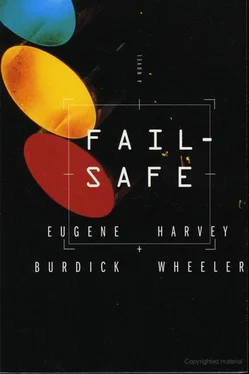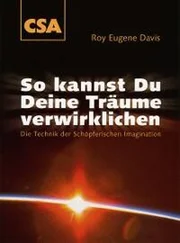Swenson came up on the telephone.
“Mr. Secretary, four fighters shoot down the Vindicators it will be tragic, but the big problem will be over,” the President said. “I would like your people to be thinking about what we do if the fighters cannot shoot down the bombers.”
Swenson looked around the room. For a moment he debated whether or not to turn the Big Board off, but decided to leave it on as a reminder of the urgency of the situation. The problem was to get the fuziest possible answers to the questions in the least amount of time.
“Gentlemen, Omaha is plugged in with us and General Bogan and Colonel Casdo are listening in at that end,” Swenson said. “Mr. Knapp, the president of Universal .Electronics, and Congressman Raskob are also at Omaha on a visit. I have given them permission to listen to our discussion and to comment if they have something to say.”
Swenson’s voice had been almost excessively calm. Now when he spoke again, there was in his voice the sharp metallic ring of urgency.
“In a very short time the President will be back to us and he will Want answers to some questions,” Swenson said. “First, what happened? Secondly, what to do if the fighters cannot overtake the Vinclicators? Thirdly, what are the Russians going to think of all this? Fourth, what will they do about it? The discussion will be only on these points.”
Swenson glanced around the table. His eyes stopped when they came to Black. Black’s unblinking eyes, deep-sunken, almost invisible, looked steadily at him.
“General Black, will you very quickly bring us up to date on what has happened,” Swenson said.
“Mr. Secretary, the first thing to face is the fact that we are flying blind,” Black said. “No one knows exactly what has happened. All we know for sure is that SAG Group No.6 flew through its Fail-Safe point and, unless stopped, will attempt to make an attack on Moscow. Basically only two things could have happened: a compound mechanical failure or someone in Group 6 has gone berserk.”
“Statistically a double mechanical failure is almost impossible,” Groteschele growled.
“But it is conceivable, is it not?” Swenson asked the question so sharply that Black wondered if somehow he had been briefed on the earlier discussion.
Groteschele hesitated. “Of course it is possible, but…” Groteschele said, but stopped when Swenson swung his head away.
Bogan’s voice boomed over the loudspeaker. Somewhere a technician adjusted the volume and it seemed almost as if Bogan were in the room.
“I agree with General Black, but Colonel Cascio has a doubt,” General Bogan said. “Very briefly his argument is that the Russians have devised a way to mask the real position of Group 6, which is probably flying back toward the States. What we read as Group 6 on the radar is actually a group of Soviet bombers up there for precisely one reason-to lead us to believe that we have accidentally launched a bomber group at Russia. I disagree with this analysis. But it should be considered.”
Around the table there were multiple signs of restlessness. Groteschele scratched on a pad of paper. Others reached for cigarettes. Stark looked down the table at Black. Black remained impassive, but he tensed for Swenson’s reply. A lot would depend on Swenson’s reaction to Cascio.
“Thank you, General Bogan,” Swenson said, without taking his eyes from Black’s face. “I agree with your evaluation of Colonel Cascio’s argument. Now, General Black, will you continue?”
“Every surveillance device we have has been thrown on the Russians,” Black said. “They have seven bomber groups in the air at this moment. None of these can- reach America without refueling. None f them is flying an attack course. All are following -hold pasterns inside Soviet control borders. An abnormally large number of Russian fighters are in the air, in fact approximately half of their fighters are air-borne. However, a simultaneous computer analysis of their flight patterns does not reveal a definite aggressive pattern. The Russians have launched no rockets as yet. Our devices which pick up sudden discharges of energy are probably our most reliable surveillance instruments. “I am confident that the Soviets have not used their ICBMs as yet.”
“What do you make of it?” Swenson invited anyone’s comment but his tone said “keep it short.”
“They have the same problem with our Group 6 as we had earlier with the UFO,” Allen of the National Security Council said. It was the first time he had spoken. “They don’t know what it is, why it is there, or even if it is ours.”
“The best answer happens also to be the simplest,” Black said calmly. “The Russians probably picked up the same unidentified object we did. They can’t understood why our planes started to fly toward their Fail-Safe points. This thing has happened scores of timed and they have gotten familiar with the sweat. But when one of our groups did not turn back they knew it as soon as we did. That accounts for their launching an abnormal number of fighter planes. My guess is that right now they do not consider our Group 6 to be hostile or aggressive although the behavior of our fighter planes will probably begin to worry them in a few minutes. If they see the fighters actually try to shoot down the Vindicators, they will know there has been some big and dangerous mistake.”
“Or they will think we are sending them in as a ruse,” Groteschele said sharply.
“That is correct,” Black said. “Whichever of these interpretations they make will be alarming to them. Even so, I would not expect them to take any kind of retaliatory or offensive action that could not be recalled unless Group 6 actually invades their air space or we start to take what appears to be broader hostile action in support of Group 6.”
Allen of the NSC walked back to his chair at the table. He had been speaking on a phone at the far end of the room.
“Mr. Secretary, I have been talking to the National Security Agency people,” Allen said. “As you know they keep a 24-hour a day surveillance on Soviet communications, making tape recordings of everything that is said.” (Black looked at Stark. They bad both heard that when the U-2 went down with Powers the NSA people had listened to the Soviet antiaircraft crews talking on the radio and knew that Powers had lost power and dropped to 86,000 feet.) Allen went on, “They tell me that there is no significant increase in Soviet military communications and they estimate that right now, the Soviet military apparatus is not on a full alert or in aggressive position.”
“Professor Groteschele, would you care to comment on what the Russians might be thinking?” Swenson said.
General Bogan’s voice cut in flatly and without apology from Omaha.
“Who is this Groteschele, Mr. Secretary?” General Bogan asked. “Why is he sitting in?”
Swenson’s reply was polite but edged with ice. “Professor Groteschele is a recognized authority on many of the matters before us and was invited here at the express wish of the President.”
Groteschele smiled. Quite unconsciously, he stood up, the posture of the professor addressing students. He chuckled and then abruptly broke it off. He had seen Swenson’s face, stony hard, eyes a flat commanding blue. The look Swenson gave Groteschele was as explicit as a command.
Then Groteschele, to Black’s astonishment, spoke crisply, without ambiguous words and without evasiveness. The Russian leaders are Marxist ideologues, he said, not normal people. They believe history is determined by nonhuman events which will assure the victory of Communism. Nuclear war would interrupt the process of this historical determinism. Russians have more to lose by war than we. Therefore, an American first attack would bring Russian surrender rather than nuclear retaliation.
Читать дальше











